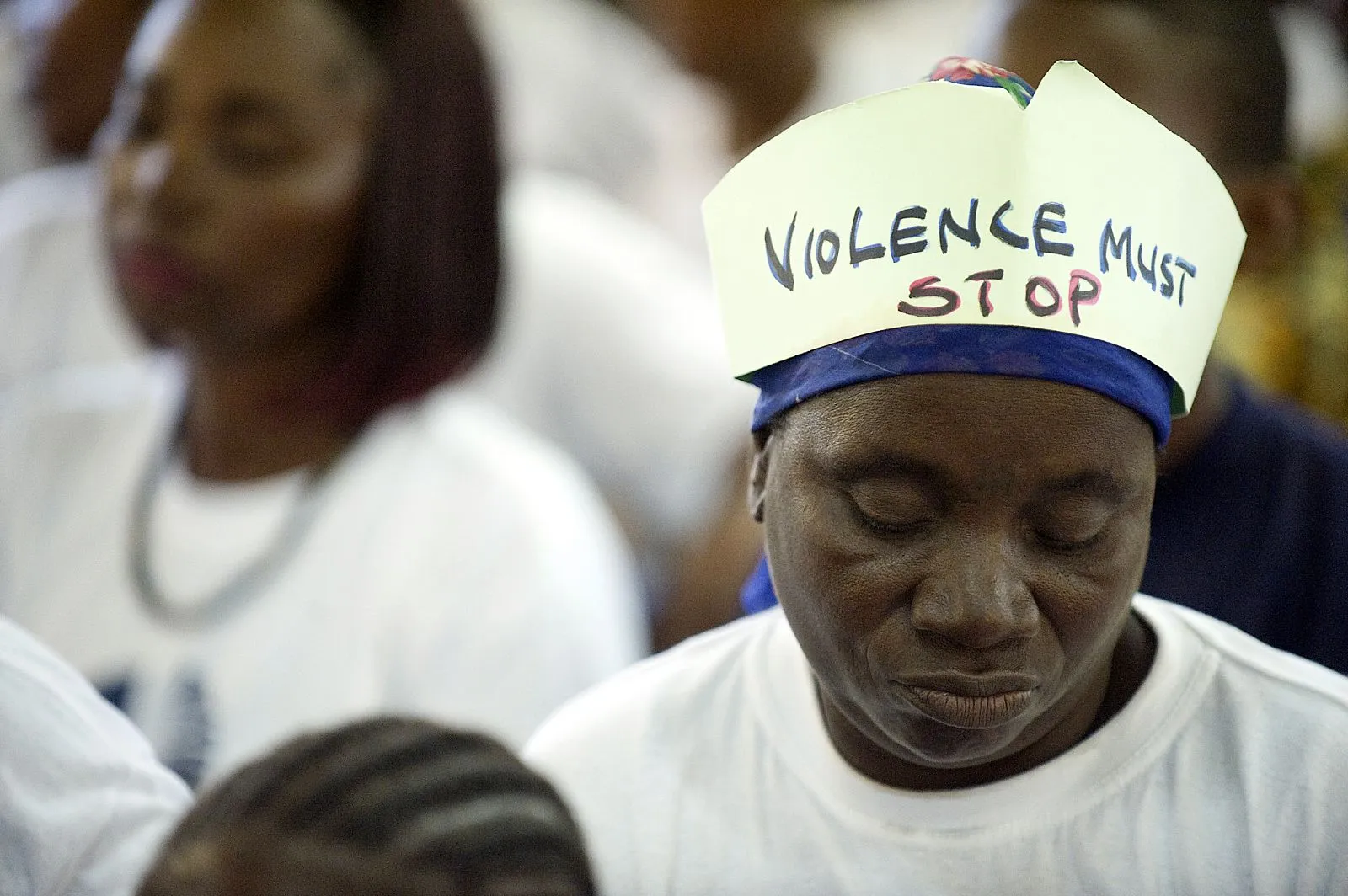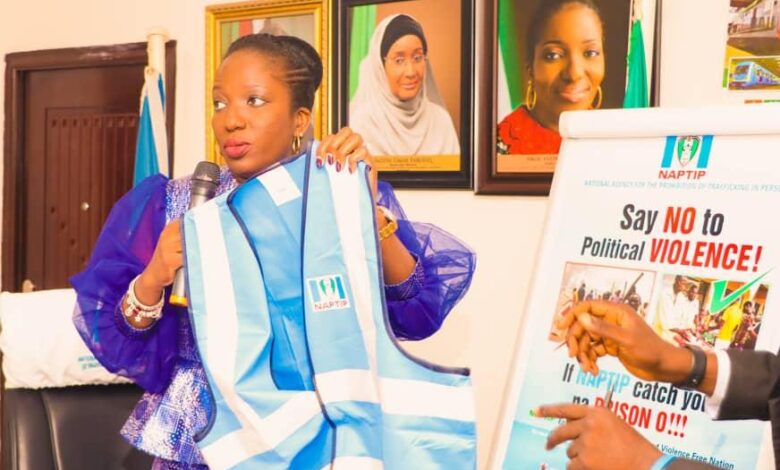When the Violence Against Persons (Prohibition) Act, 2015 (VAPP) was signed into law, many women’s rights advocates believed it would finally end dehumanising practices against widows. But 11 years on, the cruel ritual that inflicts physical and psychological pain on mourning wives still thrives in parts of Nigeria, taking on a new, sneaky, sinister dimension. In this investigation, JULIANA FRANCIS and ANGELA NKWO-AKPOLU expose the gap between the law and the harsh reality that widows continue to face, looking at reported cases, prosecutions and convictions that occurred between 2020 and 2025.
Mrs Mary Olawoye was a difficult person to convince to grant an interview. Understandably so, she did not want to recall an event that traumatised and left deep psychological scars.
After weeks of back and forth, she finally, though grudgingly, agreed to be interviewed, but with a caveat: she did not want a face-to-face interview.
She insisted on a virtual one. Even when the reporter offered to meet her at any venue of her choice, she remained adamant.
Olawoye, an indigene of Amo in Ondo State, lost her husband on 21st of January 2019, when she was just 40 years old.
When her husband fell ill, his family called him to come to Ondo town, insisting that “not everything was about the hospital.” The couple argued about it, but eventually, she allowed him to go.
In Ondo, he was taken to different places, including churches, before he was finally brought to the hospital, by which time his condition had worsened.
Olawoye recalled: “When he passed away in the hospital, my mother-in-law and father-in-law were there. They told me that if he had died at home, they would have asked me to eat his corpse. That was the first shock I ever experienced.
“The next day, January 22, we took his body to his father’s residence because we were living in Akure. We had a building under construction in Ondo, and that same day, he was buried.”
Olawoye said it was after the burial that she began to experience things she never imagined: psychological abuse, threats, deprivation of liberty, and even the loss of her property.
She recounted: “My mother-in-law, father-in-law, and others came to the room where the corpse had been laid before burial. I was forced to stay in that room. There was a mattress there, but I was warned not to sleep on it. I slept on a mat. My children were with me. My in-laws instructed me not to change my clothes, even though I had worn them for three days in the hospital. I was forbidden from changing my underwear, bathing, brushing my teeth, or even putting my hands in water.
“At first, I thought it was a joke, but they insisted I had to do it for seven days. Many people secretly warned me that I must obey, otherwise my children would suffer misfortune in the future. Out of fear, I complied. For seven days, I did not bathe, brush, or even wash my hands. I could not eat properly, surviving only on tea.”
This incident happened five years after the advent of the VAPP Act 2015. The Act is designed to protect women against Sex and Gender-Based Violence (SGBV).
Gender-based violence (GBV) refers to any act of violence that is directed against an individual based on their gender identity or perceived gender.
 According to the United Nations, Declaration on the Elimination of Violence against Women, “violence against women,’ means any act of gender-based violence that results in, or is likely to result in, physical, sexual or psychological harm or suffering to women, including threats of such acts, coercion or arbitrary deprivation of liberty, whether occurring in public or in private life.
According to the United Nations, Declaration on the Elimination of Violence against Women, “violence against women,’ means any act of gender-based violence that results in, or is likely to result in, physical, sexual or psychological harm or suffering to women, including threats of such acts, coercion or arbitrary deprivation of liberty, whether occurring in public or in private life.
“Violence against women shall be understood to encompass, but not be limited to, the following: Physical, sexual and psychological violence occurring in the family, including battering, sexual abuse of female children in the household, dowry-related violence, marital rape, female genital mutilation and other traditional practices harmful to women, non-spousal violence and violence related to exploitation.”
The Convention on the Elimination of All Forms of Discrimination Against Women (CEDAW) and the Maputo Protocol (Article 5) identify harmful traditional practices, including widowhood rites, as violence against women.
The 1999 Constitution of the Federal Republic of Nigeria, Sections 33 to 35, guarantees fundamental rights, including the right to life, dignity, and personal liberty, which are directly infringed upon by widowhood rites.
The VAPP Act describes harmful traditional practices as “all traditional behaviour, attitude or practices, which negatively affect the fundamental rights of women, girls or any person, and include harmful widowhood practices, denial of inheritance or succession rights, female genital mutilation or female circumcision, forced marriage and forced isolation from family and friends.”
Olawoye, continuing her narration, said: “On the fourth day, my father-in-law came to ask how I cleaned myself after answering the call of nature. I replied that I had not gone to the toilet at all. I endured it all and obeyed their restrictions for the full seven days.
“On the eighth day, they told me I must cut my hair. I refused at first, but people pressured me, saying it was for my own good and would help me if I wanted to remarry. I finally gave in and cut my hair, leaving just a patch in the middle. After that, I was allowed to bathe. They said all the clothes, slippers, and everything I had touched during that period must be burnt.”
Olawoye said she was certain she would not stay in her in-laws’ house for the rest of the 40-day mourning period due to everything that was going on.
She managed to get a phone, called her brother to pick her and her children, and then returned to Akure.
“I stayed at home for the 40 days of mourning. Nobody came to check on us until the 40th day. On that day, my mother-in-law and my husband’s younger brother came to Akure to check on us. That was the last time I saw them to date.
“Later, I returned to Ondo after my father-in-law called. He began asking about my husband’s finances, how much money he had, what was in his account, who owed him, and what property he left behind. They even asked for his ATM card.
“I was stunned. I reminded them I had three children with my husband, plus a fourth, a boy from another relationship he had, yet no one showed concern for the children. All they cared about was money.
“I told them plainly: ‘What savings are you talking about? What job did he have that allowed him to save? I’ve been shouldering 90% of the family’s burden. Just because I kept quiet doesn’t mean you can pressure me now.’”
Olawoye said her in-laws yelled at her, demanding she hand over two of the children. She refused, confused by their insistence. When they saw she would not give in, they vowed never to support or help with the children.
“Since 2019, I have not received a single penny from them. They have not called, they have not checked on us, they have not looked back,” Olawoye said. “What hurt me most was the land I bought with my own money, which I registered in my father’s name. My father-in-law sold it. I cried. I wanted to confront him, but people advised me not to, for the sake of my children’s safety.”
Mr Ebenezer Durojaye, in the International Journal of Law, Policy and the Family, ‘ notes that beyond the pain of loss, widows often face deprivation, helplessness, and harmful cultural practices.
He explains that widowhood rites are meant not only to mourn the dead but also to maintain ties between the living and the departed, often through rituals such as widow cleansing in Eastern Africa, levirate marriage in Southern Africa, or shaving a widow’s hair.
These practices, he argues, are inhuman, demeaning, and sometimes life-threatening.
“Some commentators have argued that widowhood practices are not only tools to perpetuate gender inequality but are also barbaric, atrocious, unethical, and a gross violation of women’s fundamental rights and freedom,” he said.
The journal, Some Widowhood Practices As Violence Against Nigerian Women, stresses that some customary laws in traditional Nigerian societies reflect social stratification and prejudice, treating women as inferior to men.
In male-dominated Nigerian societies, this has subjected women to degrading and inhumane treatment, reinforcing their subjugation, and formulated many devices, such as widowhood practices, to achieve this selfish ambition.
According to the journal, upon a man’s death, his wife is often subjected to traditional widowhood rites to prove her innocence, a practice still widespread in many Nigerian communities, especially in the South.
The rites include traumatic wailing, chest beating, flinging of arms, and repeated cycles of collapse and rising, sometimes lasting from four days to a month.
Widows are often forced to sit under the bed of the corpse with their legs outstretched, crawl over or sleep beside the body, fast on the burial day, lie on bare floors, and bathe in darkness or at streams after burial.
After burial, the Daughters Association of the deceased’s extended family shaves widows’ hair with broken bottles, razors, or unsterilised metal, leaving them unkempt and vulnerable.
Many are then locked in dark rooms to “confess” their role in their husband’s death, denied basic hygiene, and forced to eat from unwashed plates, walk barefoot, and avoid mirrors.
During mourning, they are also considered “unclean” and must avoid elders. At midnight, some are sent to streams for purification baths and given only black sackcloth to wear in public.
The journals disclosed that in extreme cases, widows are compelled to drink water used to wash their husband’s corpse as proof of innocence. In parts of the Southeast, a widow may even be forced to mate with a dwarf 12 days after burial to “cut ties” with her late husband.
Others must swear before a deity, sometimes by swallowing food mixed with bones from the funeral; if the bones choke them, they are declared guilty.
These ordeals usually end with the burning of the widow’s shaved hair and mourning clothes.
The journal also highlights Levirate marriage, where widows are treated as property to be inherited and are further victimised through disinheritance, as many communities deny them property rights on the basis that they themselves are objects of inheritance.
The Journal of Humanities and Social Policy states that male dominance remains one of the major factors influencing harmful widowhood practices.
The journal stresses that the situation is worse for widows without children, who have no place in their late husband’s house.
The National Library of Medicine mentions that many sanctions placed on widows by society make it difficult for women to express their viewpoints in widowhood.
The Violence Against Persons (Prohibition) Act (VAPP Act) 2015, explicitly criminalises many of these practices.
VAPP Act 2015, Section 15, speaks directly on ‘Harmful Widowhood Practices, stating: “A person who subjects a widow to harmful traditional practices commits an offence and is liable to a term on conviction, to a term of imprisonment not exceeding two years or to a fine not exceeding N500,000 or both.”
Other sections of the VAPP Act, while not speaking directly on harmful widowhood practices, mention similar practices faced by widows. These sections can be leveraged.
For instance, section 9(1) talks about penalties for “forceful ejection from home.” Section 10 (1) mentions the consequences of depriving a person of liberty.
Section 13 (1) speaks of a jail term for anyone who “forced isolation or separation from family and friends.” Section 14 (1) maintains that no one has the right to cause another “emotional, verbal and psychological abuse.”
Section 20 (1) further speaks on “harmful traditional practices” and imprisonment.
The National Agency for the Prohibition of Trafficking in Persons and Other Related Matters (NAPTIP) is the regulatory body, mandated to administer the VAPP Act and collaborate with relevant stakeholders.
Some interviews carried out by these reporters revealed that widows are still being subjected to these harmful practices in some parts of Nigeria, 11 years after the advent of the VAPP Act.
However, this investigation discovered that although some parts of Nigeria still practice it, harmful widowhood practices have morphed into new or modern dimensions, with lies or trumped-up charges, property deprivation, witchcraft, intimidation, and police harassment, deception, among others, now being thrown at the widows.
The investigation also found that some women and widows are still unaware of the existence of the VAPP Act, let alone a law that can protect them.
Findings from primary and secondary Data showed that widows hardly report cases of harmful widowhood practices.
The question begging for an answer is how many widows have tested the VAPP Act and how many perpetrators of these harmful practices have been jailed, let alone arrested, and why does this practice continue?
With regret, Olawoye said, “I’d never heard of the VAPP Act or any law protecting widows in Nigeria. If I had, I would’ve acted on the 8th day after my husband’s burial. It’s not easy for a woman to go seven days without bathing, brushing, or touching water.”



























